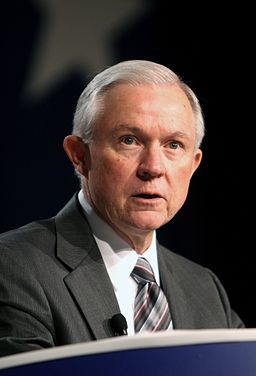 |
| By Gage Skidmore [CC BY-SA 3.0] |
Lots of us aren't crazy about change. It is very easy for me to think back to how things used to be in some context and to wish that they still were that way. I can do this even when it comes to something most of us would recognize as progress because "progress" tends to be subjective and often has a downside. And so, it is tough to blame the Christian too much for wishing that more people still equated being a Christian with being a good person, wishing that young people were as respectful of their elders' faith as some used to be, wishing that criticizing Christian beliefs was still as taboo as ever, and so on.
The difference is that while I can identify a number of ways I might wish things were like they used to be, I would not label any as involving persecution. I might even agree with a few of the things about which some Christians complain (e.g., the proliferation of profanity on television), but I'd never claim that this somehow makes me a victim. If I don't like it, I don't have to watch it. I have zero interest in restricting anyone else's freedom to do so.
From what I can tell, many Christians claim persecution because it energizes other Christians and helps them mobilize people to take action. This strategy is hardly unique to Christians, and it isn't all that different from how virtually anyone seeking to change the world tries to provoke outrage among potential supporters. What does start to look a bit different is (1) the central role in which persecution plays in the shared identity of many Christians and (2) the manner in which some Christians leverage complaints of persecution into successful efforts to persecute others.
For many Christians, being persecuted by broader society seems to be an important part of what it means to be a Christian. If this sounds a little bit like what many conservatives are fond of referring to as the "victim culture" evident among some on the left, I think that is probably a fair assessment. Some Christians made this a core part of their identity long before we ever heard of some liberals embracing victimhood. It is worth noting that some of the same conservatives who are so critical of the left's victim culture quickly claim victim status due to their fundamentalist Christianity.
I've heard many liberals claim that conservative Christians are upset because they can no longer discriminate against others. I think there is some truth to this; however, I'd be surprised if this was something most conservative Christians consciously embrace. If given the choice, there is little question that they would prohibit same-sex marriage. At the same time, I don't think that most conservative Christians think about this in the way that many liberals assume they do. There are notable exceptions, but I suspect that most conservative Christians are operating more out of an ill-defined sense of nostalgia than any particular animosity toward LGBT persons. It is more of a vague sense of "I want things to be like they used to be" than a clear hatred of others.
As for the exceptions, they are cause for concern. Christian extremists like Mike Pence and Jeff Sessions are dangerous. They, along with far too many like-minded Christian extremists, have made it clear that they seek Christian theocracy and are willing to set aside the rights of non-Christians to achieve it. They pose a threat to secular democracy that requires our vigilance.